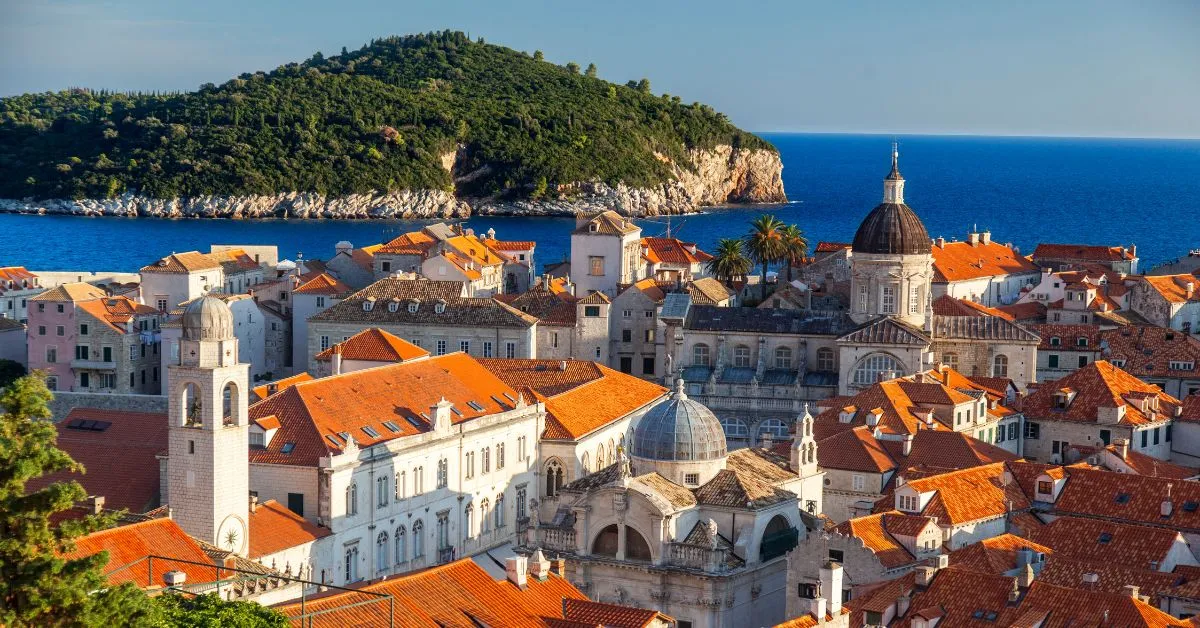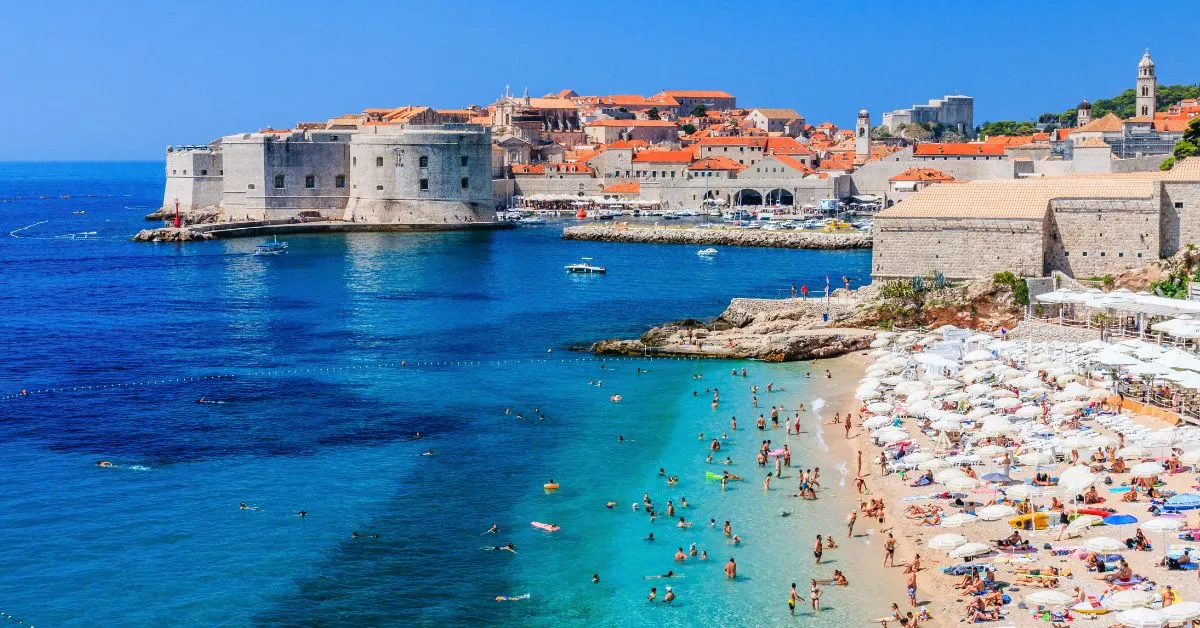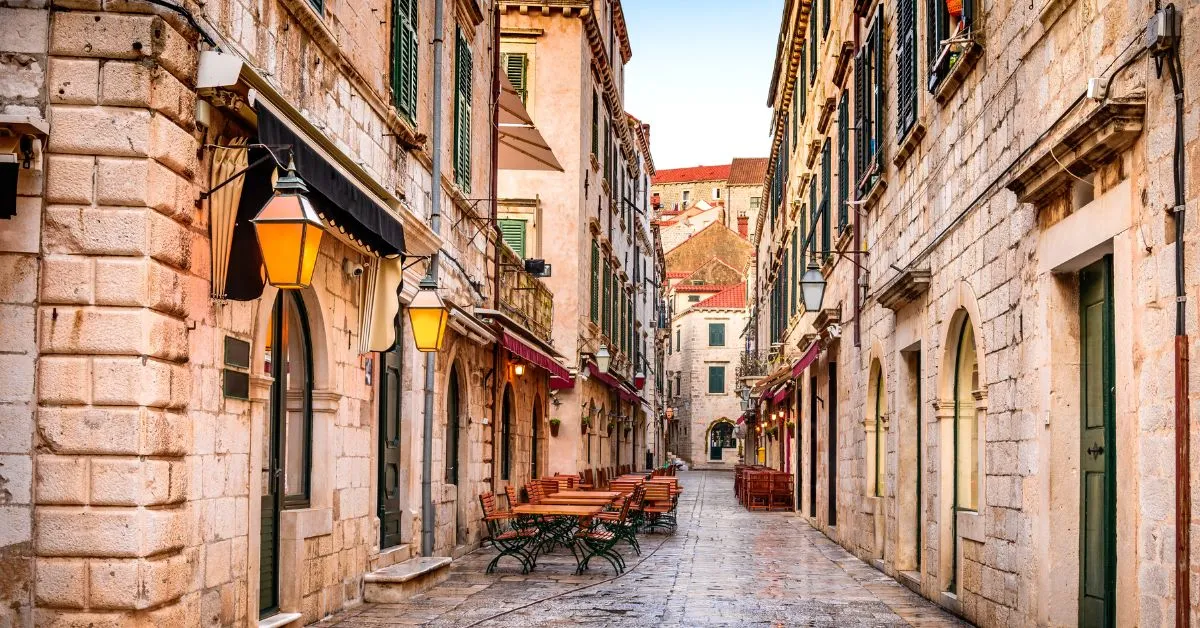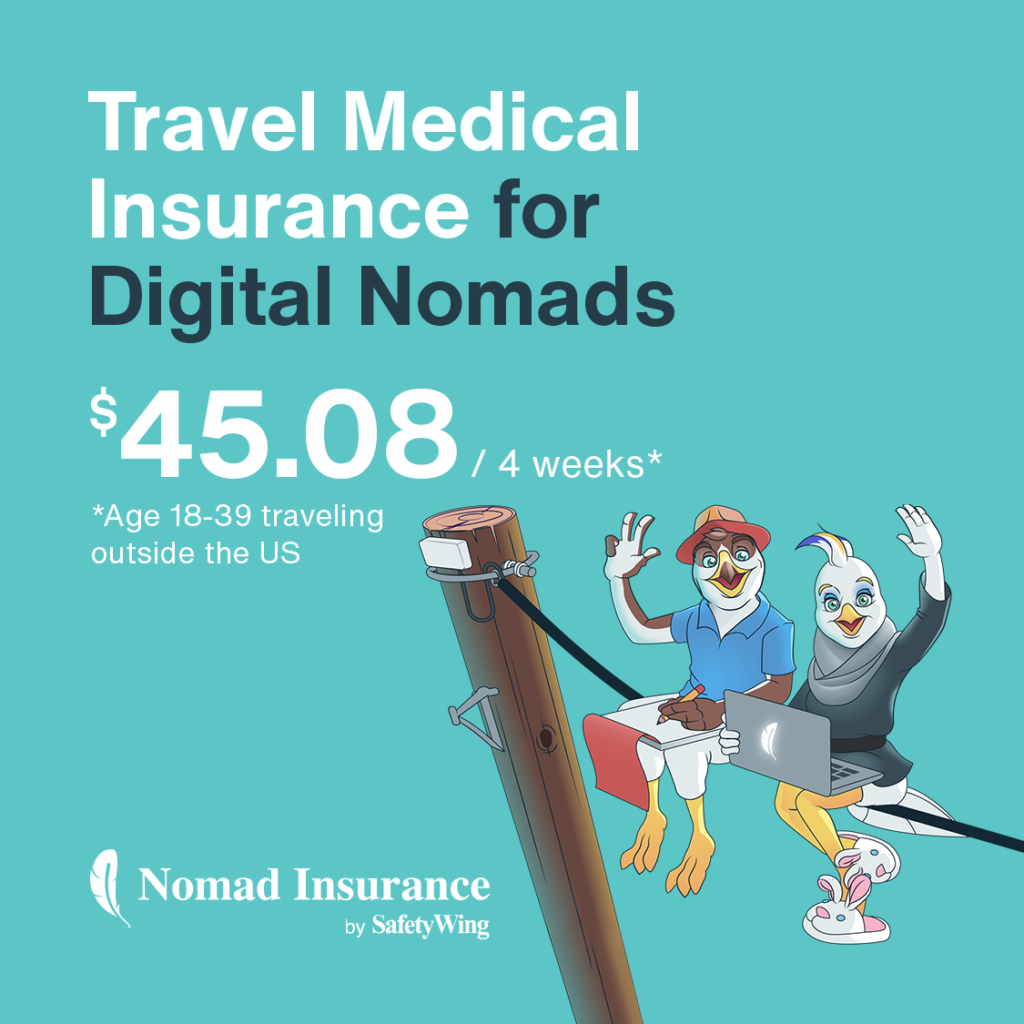Many people see Croatia as a Mediterranean paradise. Packed with beaches, mountains, and gorgeous architecture, it is a truly wonderful place. It is no surprise that so many people choose to book their vacation packages to Croatia as their vacation spot.
But what happens if you are a digital nomad? Is it worth taking your laptop and working there for a specific amount of time? Is the cost worth your business-meets-pleasure trip?
And most importantly, do you need to have a digital nomad visa for that?
Well, that depends on your work style and how long you intend to stay. In this guide, you’ll find information for expats in Croatia that you must know before moving there.
Wondering if you need a visa for Croatia? Check on iVisa.
Visas In Croatia
Digital nomads in Croatia may have to take different visa solutions, depending on where they are coming from. If they are part of the European Union (EU), European Economic Area (EEA), and Schengen Area, they won’t even need a visa for short stays. Just the passport or the ID will be enough.
The limit for that is 90 days for all EU/EEA countries. If you plan on staying past that date, you will have to apply for a temporary stay visa. This visa can last for up to a year and may not be extended, but you can reapply 6 months after the old one expires. This means you may return later for a work break on Croatian lands.
If you plan on remaining there for more than a year, you should go for a long-stay visa. You can go for a Croatia Work visa, which permits you to work and live in Croatia. This visa will require you to pay taxes to the Croatian government.
Starting in 2023, visitors outside the EU will also need to apply for an ETIAS (European Travel Information and Authorization Information). This will be necessary even if you are traveling for less than 3 months and will grant you entry.
Digital Nomad Visa
There is a digital nomad visa in Croatia that you could opt for. Introduced at the beginning of 2021, in January, this visa was the answer to the influx of digital nomads that the country was getting.
Truth be told, it is not referred to as a visa, but a residence permit. This digital nomad visa allows you to live in a country for longer than a tourist visa. At the same time, you get all the benefits that a tourist would.
There are several requirements that you will have to meet, aside from a valid passport. First, you need to prove that you get remote income (i.e., a freelancer or employee/entrepreneur working outside Croatia). You will also need a temporary address, health insurance, and a criminal background check from your country of residence.
You need to make a minimum of HRK 17,822.50 (around EUR 2300) per month to obtain the digital nomad visa in Croatia. Once you are accepted, you may live in the country for up to one year, without having to pay local income tax.
Getting a visa is relatively easy. You may apply in person or online, and it will be handled by the Croatian police. To make things easier, you may want to look for specialized partners that work with the nomad embassy.
Best Places to Live in Croatia as a Digital Nomad
Finding the perfect place to go to in Croatia may be challenging if you like working in coworking spaces. However, there are possibilities for you. What’s important is that you find the right accommodation. Here are some suggestions for charming and pretty relaxing places to work in.
Dubrovnik
Dubrovnik may not have any co-working spaces, but there are plenty of areas with great Internet where you can stay at. The city is a touristic one, which makes it a not-so-suitable solution if you have to work constantly.
While costly, it is not impossible. For instance, if you get a hotel room, you can most likely get to work in your room or the lobby. You may find apartments for rent as well if you want some privacy. Once you are done with the work, you may set out and start exploring the city.
Split
If you like co-working spaces, then you may want to try Split. The city has a tourist vibe, but at the same time, it is perfect for digital nomad lives. There are various co-working spaces where you can enjoy some quiet times. If you don’t mind a bit of background noise, there are also numerous quiet cafés with good Internet.
Once you are done with work, there are plenty of places for you to visit. You have nightclubs where you can dance it out, or you may relax at a jazz lounge. Strolling on the beach can be very relaxing, and you may even get your laptop and do some work at a café there.
Zagreb
If you are a fan of beautiful architecture, Zagreb is the place to go. Vibrant and vivid, both daily life and nightlife are rich. Thus, digital nomads that want a change of pace may enjoy the place.
Over the years, many entrepreneurs and digital nomads came into the city to work. As a result, co-working spaces began to rise for these expats in Croatia. You may find something with your desired level of comfort, or you may simply get your own place with a desk and good Wi-Fi.
Once you are done with work, you can start visiting Zagreb. Since it is a major city in Croatia, you will never be bored. There are plenty of museums and parks that you may relax in, as well as various tranquil lakes. Even if you need complete silence while you are working, there are some hidden places you may find suitable.
Zadar
If you have a soft spot for history and ancient ruins, then Zadar is a great place to go. The Old Town is packed with ruins from Venetian and Roman times. The landscape is also very stunning. On one part, you are overlooking the sea, whereas the other shows you towering mountains.
Zadar is unique because it has its own digital nomad village. With numerous co-working spaces and homes for rent at a low cost, it is the perfect choice for digital nomads that want a change in scenery.
Rovinj
If you want to get your digital nomad visa in Croatia during the warmer months, then you could give Rovinj a try. The city is not as crowded and is more relaxed as compared to other cities.
The sea is very close, which means you can easily get work done while lounging on a beach chair. The only co-working space there is Coworking Rovinj-Rovigno, but there are plenty of quiet cafes as well. Wi-Fi is often excellent and free of charge, and drinks are usually very cheap.
Since it is a small city, digital nomads in Croatia may not have as many accommodation options to go for. However, they are very affordable if you book them ahead of time. The resort town is particularly popular for those who wish to stay for a longer time.
Cost Of Living In Croatia
There is a very good reason why Croatia is such an attractive spot for digital nomads: the cost of living is low. Compared to other countries, you do not pay as much for accommodation, groceries, or the occasional night out.
Croatia uses Kuna (KN) as a method of payment. On average, a cup of coffee is 9.50KN ($1.51), while one beer is 14KN ($2.22). An affordable yet decent meal is around 45KN ($7.15), and a monthly ticket for the bus costs about 341KN ($44). The monthly rent for a one-bedroom apartment or studio is around 3,210KN ($418), but the final price will depend on your proximity to the city center.
In the end, the cost of living is based on your lifestyle. It can be very expensive or very cheap. If you go to the most popular cities, choose a temporary apartment in the city center, rely on cabs and eat only at restaurants, the costs can be very high.
However, if you choose a place around the outskirts, cook your food and use public transportation, it can be quite affordable. Some things are also more expensive than others, but this applies to any other country. It mainly depends on you and what you prefer to spend your money on.
Final Thoughts On Digital Nomad In Croatia
Croatia is an excellent choice for digital nomads. Not only are the costs of living low, but the country is also beautiful. Expats in Croatia will most likely have a great time there while being productive.
If you are looking to work as a digital nomad in Croatia, you won’t have much trouble at the borders. If you are in the EU/EEA, then you will be able to stay without a visa, provided you don’t stay more than 90 days.
Other than that, you have the temporary stay visa or the digital nomad one. You should check to see if you meet the requirements and then pay a visit to the embassy. Sending an email or giving them a phone call can save you some time.
Exploring other destinations as a digital nomad? Read one of the following guides:




